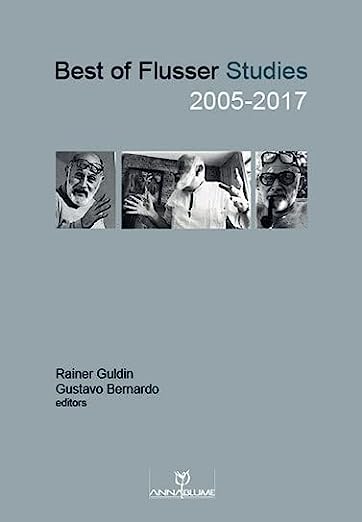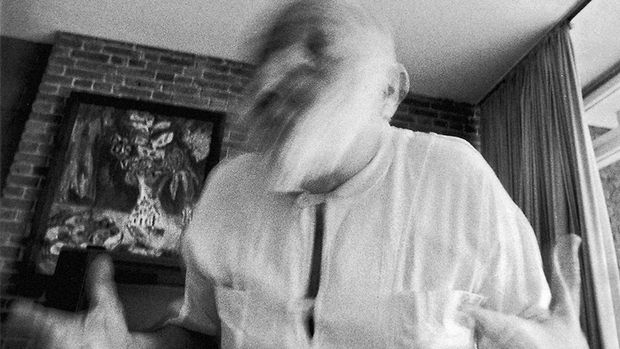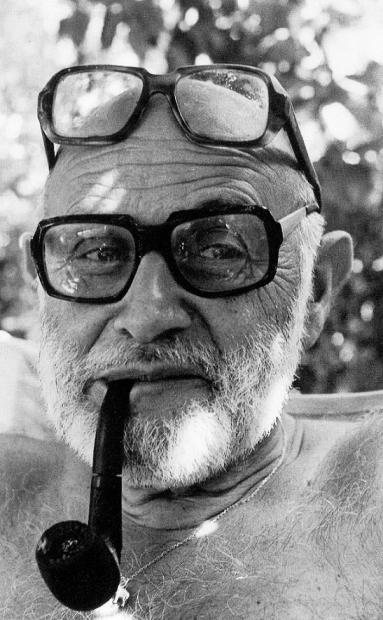Flusser Studies is an international e-journal for academic research dedicated to the thought of Vilém Flusser (1920-1991). In addition to publishing articles about Flusser’s work, the journal seeks to promote scholarship on different aspects of specifically interdisciplinary and multilingual approaches Flusser himself developed in the course of his career as a writer and philosopher. These approaches range from Communication Theory to Translation Studies, Cultural Anthropology to the New Media. I founded the journal in 2005 and am Editor-in-Chief. So far, the journal has published 40 issues (including the current issue) with altogether 320 authors. The site disposes of a search function, which accesses all the titles and the keywords.

Flusser Studies 40, the Special Twentieth Anniversary Issue is now online Current Issue | Flusser Studies. In this issue I have published a short personal statement “The Mirror Labyrinth” and an essay “, ( ) , On Vilém Flusser’s Idiosyncratic Use of
Commas and Round Brackets“.
The special issue, Angenommen. Suppose that. Suponhamos (Flusser Studies 36), edited by me, William A. Hanff, and Rodrigo Martini, focused on the collection of satirical philosophical fables Angenommen. Eine Szenenfolge that was first published in 1989. The book consists of “22 scenarios in search of images” from family life, political life, and politics. It has been recently translated into English and published by the University of Minnesota Press under the title What if? We (the editors: Rainer Guldin, William Hanff and Rodrigo Martini) deemed this an excellent occasion for a more detailed discussion of a book that has unfortunately not received the theoretical attention it deserves, probably also because it was obscured by the success of Towards a Philosophy of Photography, Into the Universe of Technical Images, and Does Writing have a Future?
My contribution, A Modest Proposal for the Saponification of Fats: On the Role of Satire in Vilém Flusser’s Work, deals among other things with Flusser’s satirical use of animal characters (ants, unicorns, the taenia solium, and the imaginary hybrid creature Bibliophagus convictus) in his philosophical fables and their relationship to the Vampyroteuthis infernalis.
Flusser Studies 35 , which I edited in May 2023, was dedicated to an exploration of uncharted territory: the notion of colour in Flusser’s work and the project of the Casa da Cor in São Paulo (1987-1989) to which I have also contributed two essays: “Coloured technical images: On the Role of Colour in Vilém Flusser’s Work” and “Colorarium: The Exchange of Letters between Vilém Flusser, Karl Gerstner, Philippe Henry and Gottfried Jäger“.
C a l l f o r p a p e r s
Flusser Studies 41 (May 2026) Special Issue: Vilém Flusser and Artificial Intelligence
Vilém Flusser was an avid transdisciplinary reader of scientific theory, information theory and cybernetics. He irreverently borrowed terms from his research and applied these to his observations on the social implications of technological transformation. Flusser actually used the term “artificial intelligence” himself on several occasions during his lifetime, to refer to various technologies, cameras and even books.
This special issue wishes to explore to what degree the concepts that Flusser developed with respect to technological development can be useful today to understand the phenomena called “AI,” what it is today and what it may presage for the future. We invite the Flusserian community to apply Flusser’s intellectual toolbox to the questions aroused by the increasing pervasiveness of the apparatus commonly referred to as “artificial intelligence”.
Some proposed themes could be:
- Artificial Intelligence and Machine Learning (ML) as apparatus or black box.
- Technical images versus AI images, meta-photography.
- Promptology and the revenge of text over images, the “crisis of linearity”.
- “Post-historical” perspective on AI/ML.
- Critical vision of AI, based upon Flusser’s critique of photography.
- ”homelessness” and nomadism, public and private in the AI world.
- AI models as censorship.
- Hallucinations (i.e. glitches, errors) in text or images generated by AI, especially the hallucinations provoked by the users.
In addition to these essays, we welcome contributions by artists whose work has a critical dimension with respect to AI/ML, what Flusser called experimental photographers, playing against the program, against the apparatus.
Please submit your contribution following the guidelines (https://www.flusserstudies.net/notes-contributors) before February 1st, 2026 to baruch@trick.ca (Baruch Gottlieb) and lenot.marc@gmail.com (Marc Lenot).
Flusser Studies 42 (November 2026) is not a special issue. Any contribution on Flusser and his work is therefore welcome.
Please submit your contribution before August 1st, 2026 to guldin.rainer@bluewin.ch
Flusser Studies 43 (May 2027) Special Issue: Vilém Flusser in dialogue with contemporary scholars
More than just a media theorist, Vilém Flusser was a polymath who wrote and reflected on various topics, from ecology to politics. His dialogue with thinkers from different fields, such as cybernetics, communication theory, and philosophy, endows his texts with not only a radically interdisciplinary dimension, but also one that is deeply open to otherness and difference. Beyond this enormous versatility, many of his interpreters also characterized him as a “prophetic” thinker, capable of anticipating future topics and dialoguing with notions that, only years after his death, would occupy scholars of culture and society. However, much of Flusserian criticism has engaged in an eminently exegetical task, only occasionally seeking to bring Flusser into conversation with specifically current issues. While some criticize his intellectual risks and his exercises in futurology, others praise him for the accuracy of his predictions.
This special issue of Flusser Studies aims to investigate the extent to which the Czech thinker can effectively be called a prophet of the technological age. We thus wish to encourage Flusser scholars to explore possible connections between the philosopher and contemporary authors and ideas, such as Bruno Latour, Eduardo Viveiros de Castro, Arturo Escobar, Friedrich Kittler, Donna Haraway, Byung-Chul Han, among others. In order to foster this debate, we suggest the following lines of inquiry:
- Do Flusser’s reflections on design mirror contemporary ideas, such as the notion of a “design for the pluriverse” developed by the Colombian anthropologist Arturo Escobar?
- Can the way Flusser dealt with issues related to post-humanism, the animal turn, and the deconstruction of anthropocentrism be likened to contemporary perspectives, such as those developed by Cary Wolfe, Donna Haraway, or Viveiros de Castro?
- Is it legitimate to consider Flusser as one of the representatives of the so-called “German media theory,” as Geert Lovink does in one of his essays? In what sense does he approach or distance himself from thinkers such as Friedrich Kittler, Bernhard Siegert or Wolfgang Ernst?
- Does Flusser’s phenomenological treatment of objects allow us to compare his intellectual attitude with the contemporary “object turn”, represented by authors such as Bruno Latour, Graham Harman, or Levi Bryant?
- Does it make sense to locate Flusser’s practice of philosophical fictions in the same domain as recent theoretical propositions, such as hyperstition (Nick Land), fictocriticism (Michael Taussig), or alien phenomenology (Ian Bogost)?
Please submit your contribution following the guidelines before February 1st 2027 to erickfelinto@gmail.com


